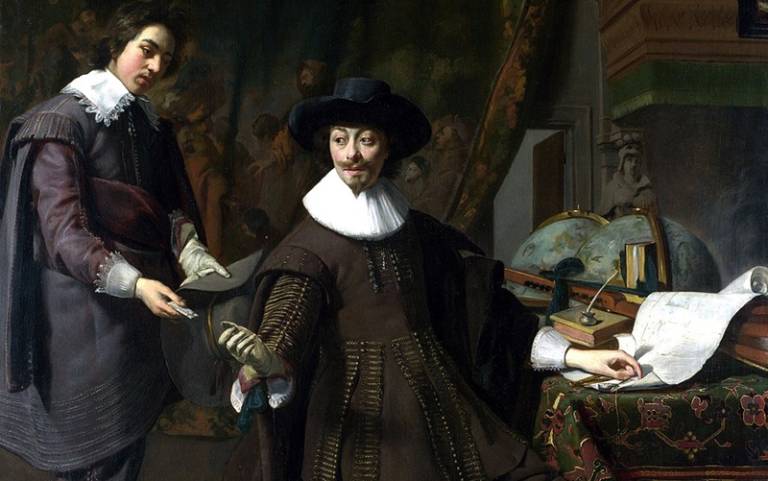HYBRID: Diplomacy and Communication / Power and Public in the early modern period
22 April 2024, 5:30 pm–7:30 pm

An IHR European History 1500-1800 seminar with Filippo de Vivo (Oxford) and Nina Lamal (NL-Lab).
This event is free.
Event Information
Open to
- All
Availability
- Yes
Cost
- Free
Organiser
-
IHR Events
Location
-
IAS Forum and onlineG17, ground floor, South WingUCL, Gower St, LondonWC1E 6BTUnited Kingdom
Scholarship on diplomacy and on communication in the early modern period is thriving. And these fields are more and more in correspondence, mutually inspiring each other and revealing significant insights into the dynamics of secrecy, publicity, ritual, and rhetoric in the process. This session is an opportunity to hear two key scholars working on this intersection in conversation, reflecting on the findings and methodological interventions. Bringing together their projects and approaches invites reflection on how to study these often ephemeral practices in the permanent record; how to understand, define, and refine 'secrecy'; whether to reconfigure the role of 'public' in our readings of the past; what value and connotation 'news' held in these entanglements. The seminar will provide a space to reflect on recent findings and look forward to future research.
Speakers
Filippo de Vivo is Professor of Early Modern History at the University of Oxford. He works on power and communication, with a particular focus on early modern Italy. He recently conducted a large ERC project on ARCHives, considering late medieval and early modern archives in principalities, republics and imperial capitals across all of Italy. He is currently working on the construction of early modern Mediterranean knowledge, with attention to power as well as protest, unity as well as division, circulations as well as secrecy.
Nina Lamal is currently a postdoctoral researcher at NL-Lab on the project Inventing Public Diplomacy in Early Modern Europe and responsible for publishing the correspondence of Christofforo Suriano, Venetian envoy to the Dutch Republic between 1616 and 1623. Her research mainly focuses on the role of different media in early modern political culture. She is currently investigating why and how diplomats in the early modern period tried to influence foreign audiences in the Dutch Republic and German territories.
All welcome: This event is free, but booking is required. Please note that registration for this seminar will close 24 hours in advance. Details about how to join the seminar will be circulated via email to registered attendees on the morning of the schedule seminar session.
 Close
Close

